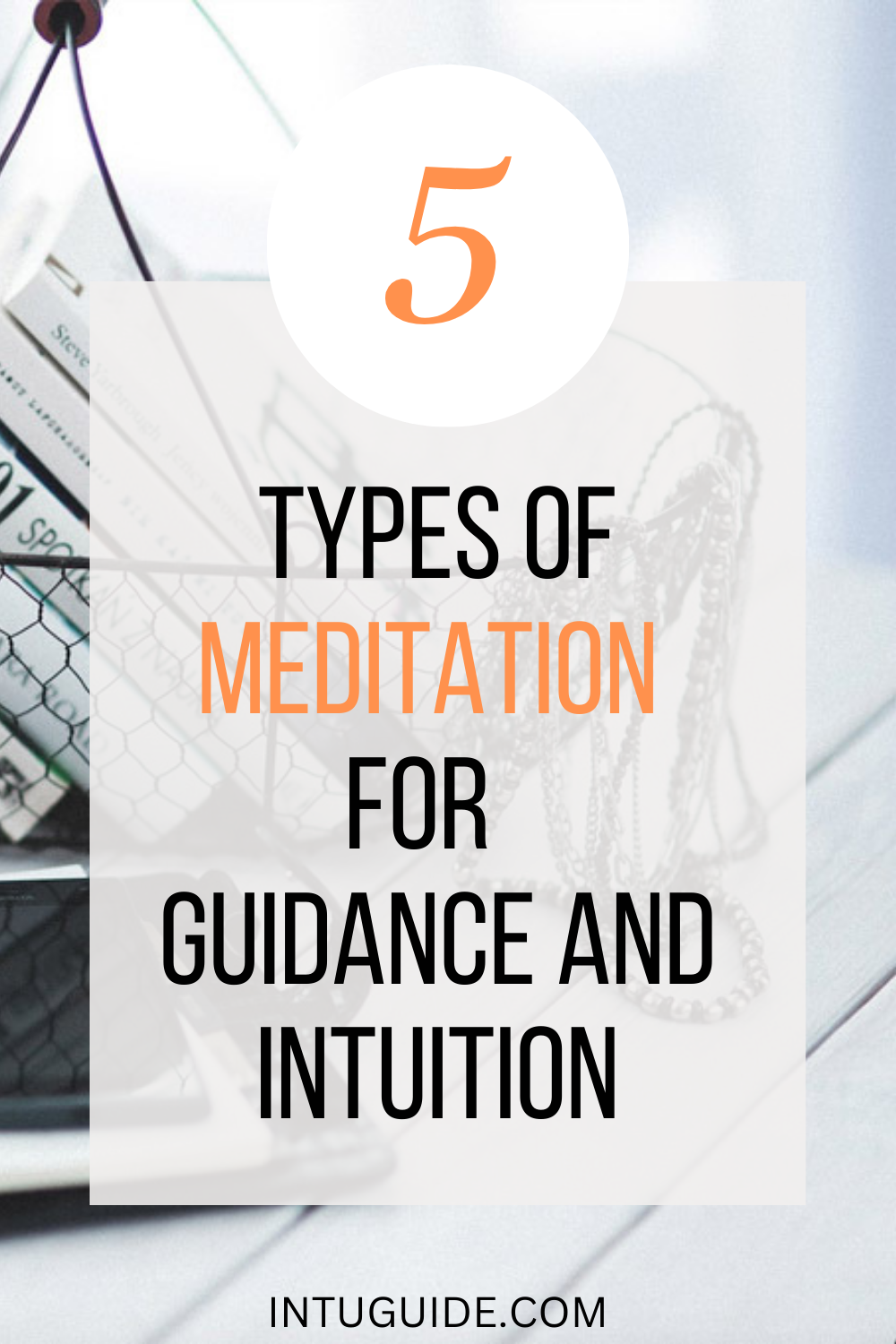Millions of people practice different types of meditation daily. The word “meditation” means “to think” or “reflect”, especially in a calm and deliberate manner.
It also means “to plan in the mind, to design, to plan by revolving in the mind, to weigh, to resolve or intend, to keep the mind in a state of contemplation, to dwell on anything in thought…” (Webster’s 1913 Dictionary).
For thousands of years, meditation has been used to cultivate awareness of the present moment. Meditation was conceptualized as a family of complex emotional and attentional regulatory strategies developed for various ends, including the cultivation of well-being and emotional balance.
Meditation is commonly used for relaxation, stress reduction, and concentration on an object, a scene, or a message. It is also helpful to calm racing thoughts. When the mind is quiet, the meditation practice gets more effective.
Some view meditation as a religious obligation, while others meditate to heal, balance emotions, or relax. Meditation can be practiced by people of different religions as well as by those who are not religious at all.
Types of Meditation and Meditative Prayer
There are many types of meditation practices around the world. Not all meditation styles are suitable for everyone. These practices require different mindsets and skills.
While there is no right or wrong way to meditate, it is essential to find a method that suits your needs. Below you will find the basic types such as focused attention meditation, open-monitoring meditation, silent mind meditation, guided visualization, and spirit-led meditation.
Focused Attention Meditation
Focused-Attention Meditation (FAM) helps to focus attention on a specific object or stimuli such as an external image or internal sensation. An individual focuses on his breath, part of the body, an object, or a prayer. With more practice, concentration develops more depth and steadiness; the focus and attention become longer and with less distraction.
Open Monitoring Meditation
Open monitoring meditation helps to observe all aspects of our experience without any thoughts, judgment, or attachment. All perceptions such as thoughts, feelings, and memory are recognized and seen for what they are. This type of meditation allows monitoring our experience from moment to moment without any reaction.
The open-monitoring meditation allows participants to understand more of their personal motives behind certain behavior. It helps them to understand better the root cause of any emotional imbalances such as depression, panic attacks, or anxiety.
Silent Mind Meditation
Usually, all typical techniques of meditation guide us to focus and train the mind. During silent mind meditation, however, the mind is not focused on anything in particular. During this type of meditation, participants learn how to view the individual’s thoughts separately from the mind. Over time, the person learns to allow or reject the thoughts that come to his mind.
Guided Visualization
Visualization is helpful for stress relief, emotional healing, or personal development. During this meditation, an individual concentrates on one thing at a time instead of holding different thoughts and ideas at once. Any place, object, or situation that is visualized and processed helps the mind to relax, heal, and bring positive experiences.
Guided Meditation (Spirit-led)
Guided or Spirit-Led meditation falls into a category of religious experience but can be practiced by anyone. In the Bible, God instructs his believers to think and calls it “the greatest form of meditation”. Guided or Spirit-led meditation is one of the most powerful types of meditation. It is especially helpful in receiving guidance. When your mind is quiet, simply ask God or the Holy Spirit to be your guide and help with the meditation process. The Holy Spirit is the purest spirit that not only guides but also heals, purifies, and transforms the person’s energy.
Benefits of Meditation
Many scientific and medical types of research prove that meditation is beneficial for health. Regular meditation practice reduces stress, lowers blood pressure, increases brain performance, improves concentration, helps with insomnia, often helps to recover from drug and alcohol addiction, and much more.
Various practices help you to focus and improve attention, help connect with your body and breath, learn to manage difficult emotions, or even change your consciousness. It has been demonstrated to improve immunity and reduce stress, among other physical and mental advantages.
In addition to its health benefits, meditation improves intuition, mindfulness, and sense of self. Regular practice helps to receive spiritual guidance and clarity about a specific situation.
How, When, And Where To Meditate?
Many people like the idea of meditation, but don’t have time to do it due to their busy family life or work. For meditation to be effective, it is recommended to spend at least 15 minutes daily. The best results are achieved when meditation lasts for one hour per day. Practitioners can dedicate an extra hour in the morning or the evening to this process.
Find a comfortable position where you can sit and hold your back straight. You can also meditate while lying down, but doing so may cause you to fall asleep. The place for meditation should be quiet, without distractions. If it’s too noisy in your house, visit a local park or do a nature walk. It is not recommended to eat heavy meals before meditation as it can make you sleepy or lethargic.
Occasional fasting helps to improve the meditation experience. Meditative focus and attention bring peace and relaxation, while your mind stays alert and conscious. A heightened sense of awareness creates a positive feeling and makes your daily routine more productive.
What To Meditate On
While meditating, practice quieting your mind, emotions, or anxious feelings. It is not easy to make your mind silent right away, so don’t be discouraged. It takes time and practice. Eventually, the mind will learn to quiet thoughts naturally.
Various types of meditation help you to focus and improve attention, help connect with your body and mind, learn to manage difficult emotions, or even shift your consciousness. Silent mind meditation helps to receive answers or guidance from Divine Providence. It also improves intuition.
When praying or meditating, many people feel like they are “channel surfing.” When you feel relaxed, fill your mind with positive thoughts and forget the negative. Let go of things that aren’t important or relevant as they will waste your energy.
Receiving messages of comfort, strength, or caution can be helpful during meditation. If you need clarity about the events in your life, ask the Divine for guidance while meditating.
Spirit-led meditation helps ask questions and receive spiritual guidance. In case you ask a question and feel a nagging feeling in your heart while thinking about something or someone, it may be a warning sign from above to pay attention to it. For instance, if something unexpected is about to happen in a particular location or to a particular person, you will have a heavy feeling toward either of those things.
For the best results, allow the Holy Spirit to lead and guide your thoughts during meditation. The Holy Spirit meditation is very emotional and sometimes can bring tears of joy. You will feel lighter and happier after it, feeling complete unity with God.
Spirit-led meditation is also beneficial for those who need protection from negative energies. The more you pray and meditate, the more light and a higher vibration your soul will have to protect you from unwanted energies.
Here is also a good scripture to stay in tune with a spirit of truth:
Whatsoever things are true, whatsoever things are honest, whatsoever things are just, whatsoever things are pure, whatsoever things are lovely, whatsoever things are of good report; if there be any virtue, and if there be any praise, think on these things. Those things, which you have both learned, and received, and heard, and seen in me, do: and the God of peace shall be with you (Phil. 4:8-9).
In a Holy Spirit-led meditation, it is essential to discern the spirits. The Holy Spirit is a spirit of truth that generally brings feelings of purification, love, and peace. The Spirit of truth feels like taking a spiritual bath and cleansing your soul and mind from all unclean things and blockages.
The Benefits of Meditation From The Biblical Perspective

Image by reenablack from Pixabay
According to the Bible, meditation means “…to ponder, imagine, meditate, converse with oneself, declare to oneself, to separate or distinguish mentally…”
In the old days, people meditated all the time:
[The righteous man’s] delight is in the law of the Lord; and in His law does he meditate day and night (Psalm 1:2).
In the Old and New Testament, people used to meditate days and nights:
O how love I Your law! It is my meditation all the day. (Psalm 119:97) (Psalm 1:2; Gen. 24:63; Joshua 1:8; Psalms 19:14; 49:3; 63:6-8; 77:12; 104:34; 119:15; 119:23-24; 119:97; 148:5)
Meditation Brings Prosperity and Success
…For then you shall make your way prosperous, and then you shall have good success” (Josh. 1:8).” “And he shall be like a tree planted by the rivers of water, that brings forth his fruit in his season; his leaf also shall not wither, and whatsoever he does shall prosper (Psa. 1:3).
Meditation Brings Hope and Happiness
Remembering mine affliction and my misery, the wormwood, and the gall…This I recall to my mind, therefore have I hope…They are new every morning: great is Your faithfulness (Lam. 3:19, 21, 23). My meditation of Him shall be sweet: I will be glad in the Lord (104:34).
Meditation Brings Strength, Wisdom, and Understanding
Princes also did sit and speak against me: but Your servant did meditate in Your statutes. Your testimonies also are my delight and my counselors (119:23-24). You through Your commandments have made me wiser than mine enemies: for they are ever with me. I have more understanding than all my teachers: for Your testimonies are my meditation” (Psa. 119:98-99).
Meditation Leads to Eternal Life
For to be carnally minded is death; but to be spiritually minded is life and peace (Rom. 8:6).
From the religious perspective, God provides us with understanding and opens our eyes to His truth. Without meditation or thinking about God’s way, we wouldn’t understand His will for us. Without the Holy Spirit dwelling in us, it is hard to understand God’s Word, the way God thinks, or why He does what He does.
Meditate on Answered Prayers
Meditation helps to concentrate on God’s word and messages. Meditate on the personal message received. Take time to listen and process any messages you hear.
Sometimes people expect immediate or dramatic answers to their questions. God is answering prayers or questions in His way. While some answers are immediate, others take some time to manifest.
God hears every petition of his child, but not every child can establish instant communication with Heavenly Father. His response may take time to manifest. Evaluate each day’s events and draw a conclusion. Meditate on the Biblical scriptures for a better understanding, and give thanks when your prayer is answered.
Meditation is beneficial for health and improves intuition, mindfulness, and sense of self. Regular meditation practice helps to receive spiritual guidance and clarity for the specific situation. The spirit-led meditation helps to align your energy with God’s energy and brings clarity and understanding of the Divine will for you.
*As an Amazon Associate, I earn from qualifying purchases.



